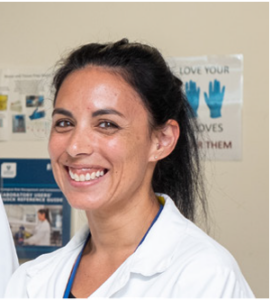Catalyst Kōrero on cell and gene therapy, Monday, August 5
Over the past decade, immune therapies have transformed the treatment of late-stage cancers, using a patient’s own immune system to target and destroy cancer.
Our August 5 Catalyst Kōrero will explore the science behind one of these – chimeric antigen receptor T-cell therapy – with two keynote speakers from the International Society for Cell and Gene Therapy (ISCT).
Known as CAR-T, this immune therapy is now an established treatment for patients with some relapsed blood cancers such as lymphoma, acute leukaemia and myeloma. Long-term data indicates it has the potential to enlist durable responses even in advanced cancers, say Associate Professor Emily Blyth and Dr Alicia Didsbury.
But while CAR-T and other immune therapies are generating excitement, there are significant barriers to implementation, including high manufacturing costs, infrastructure restrictions and logistical challenges.
Especially, it seems, in New Zealand where only one clinical trial has been conducted, compared to multiple centres in Australia already providing CAR-T to patients.
In Queenstown for the ISCT conference, Emily and Alicia will explore the science behind CAR-T’s success, the challenges to implementation, and how Australia is successfully providing access to this innovative care.
Monday, 5 August, 6 – 7:30 pm at the Liger Leadership Academy, 34 Grant Road, Five Mile shopping area. Registration required HERE to ensure your seat. Please bring cash for your koha. This will be given to the Queenstown Cancer Society.
About the speakers…
 Emily is a haematologist, bone marrow transplant physician and the Clinical lead for the Cell Therapy Service at Sydney’s Westmead Hospital.
Emily is a haematologist, bone marrow transplant physician and the Clinical lead for the Cell Therapy Service at Sydney’s Westmead Hospital.
As a Research Lead in the Westmead Cell Therapies Group’s clinical trial programme, she has taken a central role in bringing cell and gene therapy technologies to patients.
This encompasses the development of novel cellular therapies that are manufactured at the Westmead Human Applications Laboratory, designing trial protocols, treating patients on trials and assessing the biological effect of cellular therapies.
 Alicia has a PhD in immunology and leads the translational cell therapy team at the School of Biological Science, University of Auckland. Her research focuses on developing T-cell therapy for women with epithelial ovarian cancer.
Alicia has a PhD in immunology and leads the translational cell therapy team at the School of Biological Science, University of Auckland. Her research focuses on developing T-cell therapy for women with epithelial ovarian cancer.
Alicia is a trustee for the Ovarian Cancer Foundation and serves on multiple committees for ISCT.